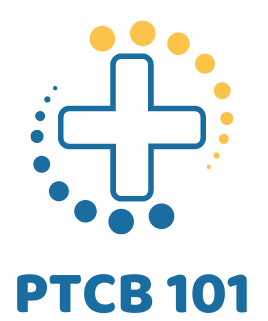Looking for programs in a specific city? Check out our lists of PTCB in Bridgeport, New Haven, Stamford, Hartford, and Waterbury.
Becoming a pharmacy technician in Connecticut can be a rewarding career.
- Educational requirements: Learn the steps to fulfill Connecticut’s educational criteria.
- Certification process: Understand the importance of obtaining national certification.
- State registration: Know the process to register as a pharmacy technician in Connecticut.
Your journey to a stable and fulfilling career starts with these essential steps.
- How to Become a Pharmacy Technician in Connecticut
- Understanding the Role of a Pharmacy Technician
- Educational Requirements
- Certification Process
- State Registration
- Job Outlook and Salary
- Career Advancement
- Looking for Pharmacy Technician Information On States Bordering Connecticut?
- Key Qualities of a Successful Pharmacy Technician
How to Become a Pharmacy Technician in Connecticut
Understanding the Role of a Pharmacy Technician
Pharmacy technicians play a crucial role in the healthcare system. They assist licensed pharmacists in dispensing medications and managing pharmacy operations. Working in various settings, including hospitals, retail pharmacies, and clinics, their responsibilities often include:
- Processing prescriptions: Ensuring accurate and timely dispensing.
- Patient interaction: Communicating effectively to relay critical information.
- Inventory management: Keeping track of medications and supplies.
- Administrative tasks: Handling billing, insurance claims, and record maintenance.
This role requires a detail-oriented mindset and strong communication skills to ensure patient safety and effectiveness in pharmacy operations.
Educational Requirements
To begin your journey as a pharmacy technician in Connecticut, you need to meet certain educational prerequisites.
High School Diploma or Equivalent
First and foremost, obtain a high school diploma or its equivalent. This is the foundational step that qualifies you for further training and certification.
Accredited Pharmacy Technician Programs
Afterward, enroll in an accredited pharmacy technician training program. These programs provide the necessary knowledge and skills through coursework that covers:
- Pharmacology: Understanding drug classifications and interactions.
- Pharmacy law: Learning state and federal regulations.
- Customer service: Developing patient communication skills.
- Medical terminology: Familiarizing with the language used in healthcare settings.
These programs often include hands-on training, which is crucial for gaining practical experience.
Certification Process
Earning your certification is a key step to becoming a pharmacy technician in Connecticut. Certification demonstrates your competency and enhances your career prospects.
There are two primary certification options:
- Pharmacy Technician Certification Exam (PTCE): Offered by the Pharmacy Technician Certification Board.
- Exam for the Certification of Pharmacy Technicians (ExCPT): Administered by the National Healthcareer Association.
These exams test your knowledge and skills in areas such as medication dispensing, patient interaction, and pharmacy law. Preparatory courses and study materials are available to help you succeed.
State Registration
Connecticut requires all pharmacy technicians to register with the state before they can practice.
Before registering, ensure you have completed the following:
- Educational requirements: High school diploma or equivalent.
- Certification: Pass the PTCE or ExCPT.
To register, submit an application to the Connecticut Department of Consumer Protection (DCP). This process may involve background checks and a registration fee.
Job Outlook and Salary
Pursuing a career as a pharmacy technician in Connecticut offers promising job prospects. The U.S. Bureau of Labor Statistics (BLS) states that the demand for this role is growing faster than average.
Salary Expectations
The salary range varies based on experience, education, and location. On average, pharmacy technicians in Connecticut earn between $30,000 and $40,000 annually.
Keep in mind that additional certification and experience can lead to higher pay and advancement opportunities.
Career Advancement
Becoming a pharmacy technician opens the door to various career advancement opportunities.
Continuing Education
Engage in continuous learning to stay updated with industry changes. Many employers support continuing education through courses, workshops, and on-the-job training.
Specialized Roles
With further education and experience, you can pursue specialized roles such as:
- Medication therapy management: Assisting pharmacists in optimizing drug therapies.
- Nuclear pharmacy: Compounding and dispensing radioactive materials used for medical imaging and treatments.
- Pharmacy management: Supervising and managing pharmacy operations.
Advanced Certifications
Consider obtaining advanced certifications, such as:
- Certified Compounded Sterile Preparation Technician (CSPT): Enhances your skills in sterile medication preparation.
- Certified Personal Trainer (CPT): If you want to branch out into health and wellness, this certification can be beneficial.
By advancing your skills and qualifications, you can enhance your career prospects and contribute more significantly to patient care.
Key Qualities of a Successful Pharmacy Technician
Success in this field requires a combination of technical skills and personal attributes. Some key qualities include:
- Attention to detail: Accuracy is critical when dispensing medications and managing records.
- Communication skills: Effective interaction with patients, pharmacists, and healthcare professionals.
- Problem-solving ability: Quick thinking to address issues that arise in a fast-paced environment.
- Organizational skills: Managing multiple tasks efficiently to ensure smooth pharmacy operations.
Conclusion
Your journey to becoming a pharmacy technician in Connecticut involves a clear path of education, certification, and licensure. By following these steps and continually enhancing your skills, you can build a stable and fulfilling career in the healthcare sector.
Understanding the Role of a Pharmacy Technician
Pharmacy technicians play a crucial role in the healthcare system. They assist licensed pharmacists in dispensing medications and managing pharmacy operations. Working in various settings, including hospitals, retail pharmacies, and clinics, their responsibilities often include:
- Processing prescriptions: Ensuring accurate and timely dispensing.
- Patient interaction: Communicating effectively to relay critical information.
- Inventory management: Keeping track of medications and supplies.
- Administrative tasks: Handling billing, insurance claims, and record maintenance.
This role requires a detail-oriented mindset and strong communication skills to ensure patient safety and effectiveness in pharmacy operations.
Educational Requirements
To begin your journey as a pharmacy technician in Connecticut, you need to meet certain educational prerequisites.
High School Diploma or Equivalent
First and foremost, obtain a high school diploma or its equivalent. This is the foundational step that qualifies you for further training and certification.
Accredited Pharmacy Technician Programs
Afterward, enroll in an accredited pharmacy technician training program. These programs provide the necessary knowledge and skills through coursework that covers:
- Pharmacology: Understanding drug classifications and interactions.
- Pharmacy law: Learning state and federal regulations.
- Customer service: Developing patient communication skills.
- Medical terminology: Familiarizing with the language used in healthcare settings.
These programs often include hands-on training, which is crucial for gaining practical experience.
Certification Process
Earning your certification is a key step to becoming a pharmacy technician in Connecticut. Certification demonstrates your competency and enhances your career prospects.
There are two primary certification options:
- Pharmacy Technician Certification Exam (PTCE): Offered by the Pharmacy Technician Certification Board.
- Exam for the Certification of Pharmacy Technicians (ExCPT): Administered by the National Healthcareer Association.
These exams test your knowledge and skills in areas such as medication dispensing, patient interaction, and pharmacy law. Preparatory courses and study materials are available to help you succeed.
State Registration
Connecticut requires all pharmacy technicians to register with the state before they can practice.
Prerequisites for Registration
Before registering, ensure you have completed the following:
- Educational requirements: High school diploma or equivalent.
- Certification: Pass the PTCE or ExCPT.
Registration Process
To register, submit an application to the Connecticut Department of Consumer Protection (DCP). This process may involve background checks and a registration fee.
Job Outlook and Salary
Pursuing a career as a pharmacy technician in Connecticut offers promising job prospects. The U.S. Bureau of Labor Statistics (BLS) states that the demand for this role is growing faster than average.
Salary Expectations
The salary range varies based on experience, education, and location. On average, pharmacy technicians in Connecticut earn between $30,000 and $40,000 annually.
Keep in mind that additional certification and experience can lead to higher pay and advancement opportunities.
Career Advancement
Becoming a pharmacy technician opens the door to various career advancement opportunities.
Continuing Education
Engage in continuous learning to stay updated with industry changes. Many employers support continuing education through courses, workshops, and on-the-job training.
Specialized Roles
With further education and experience, you can pursue specialized roles such as:
- Medication therapy management: Assisting pharmacists in optimizing drug therapies.
- Nuclear pharmacy: Compounding and dispensing radioactive materials used for medical imaging and treatments.
- Pharmacy management: Supervising and managing pharmacy operations.
Advanced Certifications
Consider obtaining advanced certifications, such as:
- Certified Compounded Sterile Preparation Technician (CSPT): Enhances your skills in sterile medication preparation.
- Certified Personal Trainer (CPT): If you want to branch out into health and wellness, this certification can be beneficial.
By advancing your skills and qualifications, you can enhance your career prospects and contribute more significantly to patient care.
Looking for Pharmacy Technician Information On States Bordering Connecticut?
In addition to Connecticut, we suggest looking for schools in nearby states.
- How to Become A Pharmacy Technician in New York
- How to Become A Pharmacy Technician in Massachusetts
- How to Become A Pharmacy Technician in Rhode Island
- How to Become A Pharmacy Technician in New Jersey
- How to Become A Pharmacy Technician in Pennsylvania
Key Qualities of a Successful Pharmacy Technician
Success in this field requires a combination of technical skills and personal attributes. Some key qualities include:
- Attention to detail: Accuracy is critical when dispensing medications and managing records.
- Communication skills: Effective interaction with patients, pharmacists, and healthcare professionals.
- Problem-solving ability: Quick thinking to address issues that arise in a fast-paced environment.
- Organizational skills: Managing multiple tasks efficiently to ensure smooth pharmacy operations.

